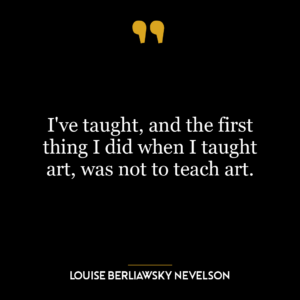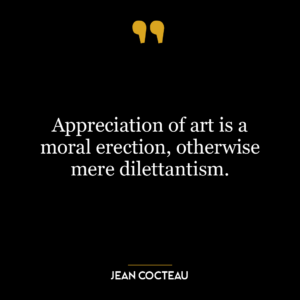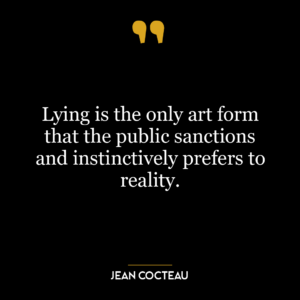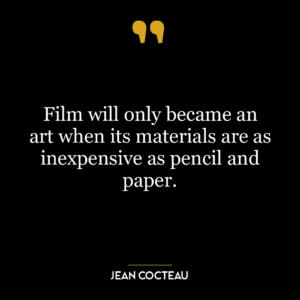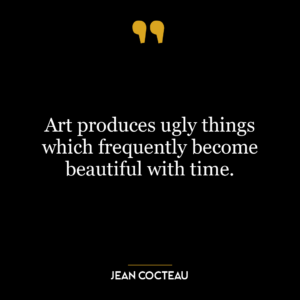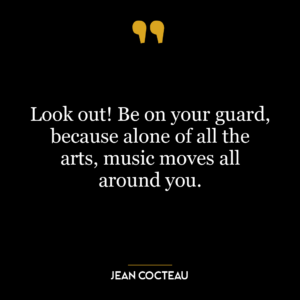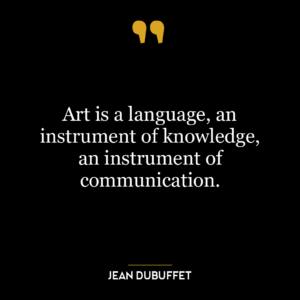This quote emphasizes the role of art as a tool for promoting empathy, understanding, and compassion. Here, art is not merely an aesthetic pursuit, but a means to highlight the inherent goodness in people, to bring it to the forefront, and to inspire others to recognize and appreciate it. Art, in this context, is a mirror reflecting the best aspects of humanity, encouraging us to strive towards these qualities ourselves.
This perspective on art is particularly relevant in today’s world, where division and conflict often dominate headlines. Art can serve as a unifying force, highlighting shared experiences and emotions that transcend cultural, political, or social boundaries. It can foster understanding among diverse groups, encouraging us to see the humanity in others, rather than focusing on differences.
In terms of personal development, this quote suggests that engaging with and creating art can be a means to cultivate compassion and empathy. By seeking out and celebrating the good in others through art, we can develop these qualities within ourselves. In this sense, art becomes a form of emotional education, teaching us to be more understanding and compassionate individuals.
Moreover, this quote also implies that art can be a form of activism. By choosing to focus on the good in people, artists can challenge negative stereotypes and prejudices, promoting a more compassionate view of humanity. This can inspire change on both a personal and societal level, encouraging us to be more understanding and accepting of others.




